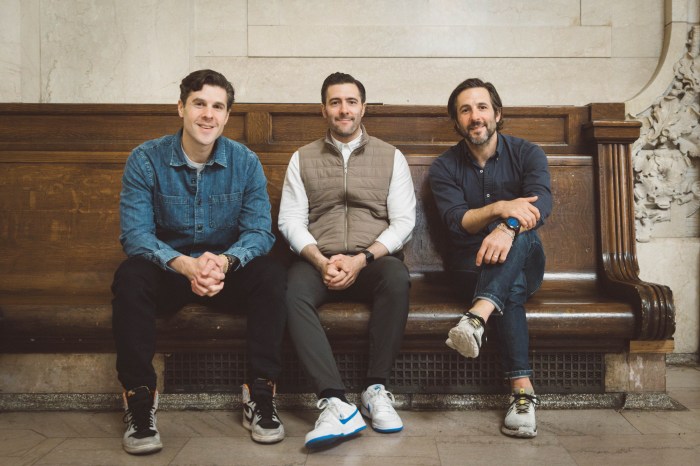Margarette Purvis is on a mission to end hunger.
As president and CEO of the Food Bank For New York City, Purvis oversees one of the largest food banks in the country. She also chairs the New York State Anti-Hunger Task Force and was appointed to the Community Schools Advisory Board by Mayor Bill de Blasio.
Her motives are clear: tackle food poverty, distribute food and promote healthy food. From her Wall Street office, Purvis clues us into how she’s going to end hunger with information and dignity in advance of the Food Bank’s Urban Adventure Scavenger Hunt this Sunday in Bryant Park.
Q How did you start at Food Bank?
A This is my second time working at Food Bank. I was vice president and I started to work here right before 9/11. I worked here for six years, and then I went and worked to help with Hurricane Katrina. When the CEO of Food Bank retired, I was asked back as CEO and have been here three years. I feel like I started at Food Bank years ago. My granny is a missionary activist, and she and my mom took me with them to feed hungry people in a Mississippi hospital. We made food at home and brought it to them. It’s what I’ve done all my life.
People say you like disaster.
I started at Food Bank two months before 9/11 and came back right before Hurricane Sandy. While those times have been really hard, I’ve been able to serve in those hard times. When Sandy hit the city, I was pulling on that which I learned from dealing with Katrina in New Orleans and 9/11.
What’s the most difficult aspect of dealing with hunger?
There still are people who don’t know how pervasive it is. There is still a lot of shame and embarrassment around hunger. People don’t want to be judged. I don’t want anyone on those lines to feel disrespected. Just because they don’t have money doesn’t mean they are disrespected. They are only missing money. We start with love and information. I truly believe most people are good people. When they can connect, they will do what’s right.
How does Food Bank work?
We work on three fronts: food distribution, income support and nutrition education. We are the Fresh Direct for charity. We send the missions and pantries recipes and train the soup kitchens with nutritious recipes. We also go to schools and encourage over 40,000 kids to love vegetables.
What role does Food Bank play in providing healthy food choices?
Food Bank provides access. In poor neighborhoods, produce is not there and the quality is bad. The price of an apple differs in the Big Apple. Food Bank is the largest distributor of free produce in the US. We are very proud of the 18 million pounds of fresh produce we distribute.
What’s the biggest impact the Food Bank makes?
The biggest impact is about being a bridge to communities with means and communities with needs. It’s not about the differences, it’s about how you bridge them. If someone wants to help make the city a better place, they can start with Food Bank. The greatest impact is that we connect the folks who need to be connected.
Tell me about the new ad campaign.
Right after Hurricane Sandy we took photos of iconic New Yorkers, including our board members Mario Batali, Kevin Bacon and Susan Sarandon, and decided to roll it out slowly. Our real focus is women. Hunger has evolved into a woman’s issue and we use iconic faces of women like Sunny Anderson and Katie Lee to raise awareness. They work and show up at soup kitchens. Katie cuts up onions while Sunny teaches a cooking class with seniors.
What’s the #GoOrangeNYC campaign?
It’s a hunger action campaign. We use the color orange for hunger awareness. Whether you make a gift, volunteer or come this Sunday where we are doing a scavenger hunt at Bryant Park, #GoOrangeNYC is registered by Food Bank and it’s now being done all over the country.
What’s #changeonething?
This is our teen-focused campaign. Teenagers need more attention and to make their own decisions. Most teens won’t use the free lunch program. We don’t talk at them, we use the web and social media and allow them to communicate their own message. The initiative is not to change a whole life, but to change one thing to make them healthier. For example, instead of eating pizza, eat an orange.
Any new initiatives?
We are rolling out a new strategic plan to encourage soup kitchens, pantries and donors to focus on the poorest neighborhoods.
Any career advice?
Don’t be afraid to be passionate and to use your passion for what you believe in. It’s OK if everyone doesn’t see what you see. Embrace your passion and good stuff will come.

































